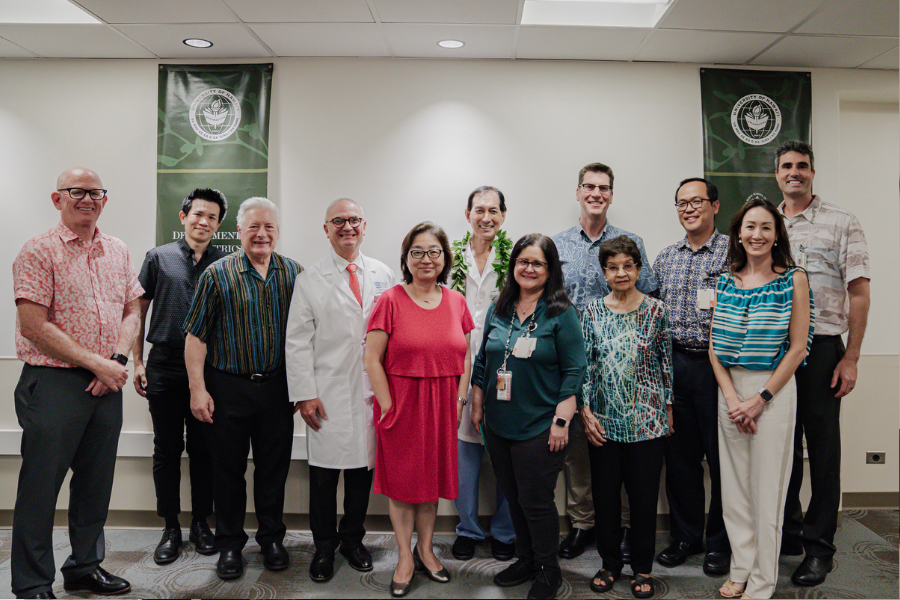
In November 2023, researchers at JABSOM made a groundbreaking discovery of microplastic particles in the placentas of women who had given birth in Hawaiʻi. Women who had donated their placentas to the Hawaii Reproductive Biorepository (HRBR) over the years from births at the Kapiʻolani Medical Center for Women & Children, made this significant finding possible.
As concerns over the growing microplastic pollution problem in the Pacific continue to mount, investigators like Dr. Men-Jean Lee, Dr. Rodrigo Weingrill, and Dr. Johann Urschitz will continue this type of innovative research at JABSOM and UH Manoa. In June, Dr. Thomas Kosasa invested a generous $250,000 to the UH Foundation to support JABSOM's HRBR Fund.
"With the support of OBGYN chair Dr. Ivica Zalud, the Kosasa family members, and especially emeritus professor Dr. Tom Kosasa, this generous investment in the Department of Obstetrics & Gynecology and Women's Health can continue," said JABSOM Dean Emeritus Jerris Hedges. "These funds are needed to preserve the unique biobank while supporting expansion of the biobank and accompanying mother/baby health dataset. This invaluable resource has led to advancements in Zika virus research in Pacific Islanders and the discovery of microplastics in mothers who gave birth in Hawaiʻi."
The HRBR was established in 2003 with key support from Dr. Kosasa and his brother Paul Kosasa. The HRBR was initially focused on genetic testing to identify high-risk pregnancies in pregnant people in our unique communities served by JABSOM. Over the years, the project became the NIH sponsored Pacific Research Center for Early Human Development's Biobank.
The responsibility for maintaining the specimens and data access was later made part of the RMATRIX NIH infrastructure grant in 2010 under Dean Hedges and colleagues. Two JABSOM investigators pioneered the oversight of the HRBR within RMATRIX: Drs. Tim Dye and Dr. Alex Stokes. Drs. Men-Jean Lee and Jonathan Riel subsequently assumed oversight of this historical archive of maternal blood, umbilical blood, and placentas in 2018. The HRBR now houses over 9,000 diverse mother/infant specimens, making it the most racially diverse mother/baby biorepository in the United States.
With this generous donation from Dr. Kosasa, Drs. Lee, Weingrill, and Urschitz will be able to take the next step in the research by training a new Fellow in Maternal-Fetal Medicine, Dr. Jacob Garcia while investigating whether the microplastic particles can pierce the protection of the placenta and enter the fetus before birth.
“Philanthropy is a hallmark of strong academic institutions,” said Dr. Ivica Zalud. “Giving is not just about making a donation. It is about making a difference. Dr. Kosasa continues to make that difference in the most distinguished way. We cannot thank him enough for his sustained generosity and trust in our department and medical school.”